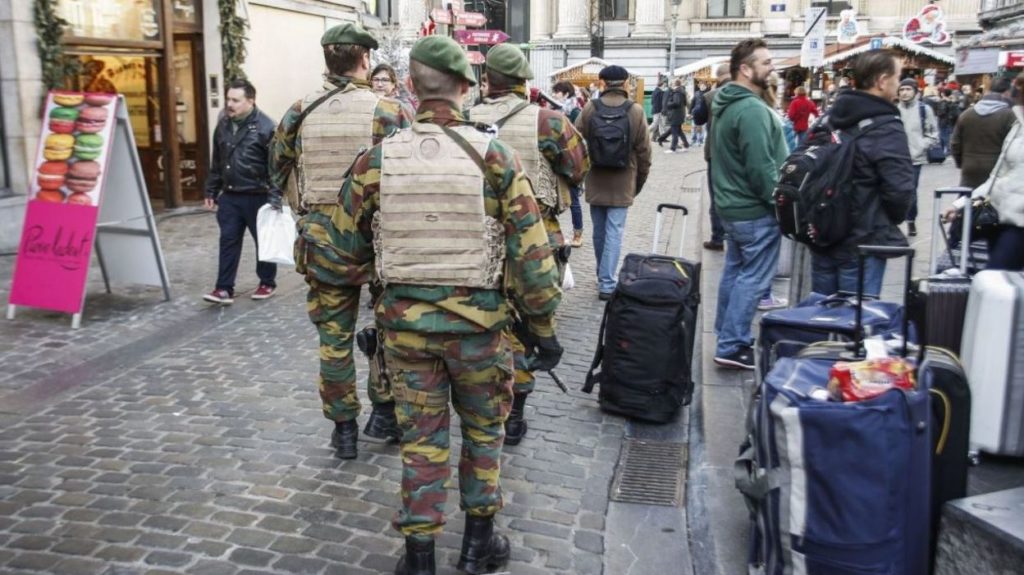The financial pressures on households are rising, there are significant issues with funding in several regional governments, and the financial future of Belgium is still uncertain. Not the time for unwise military spending, according to Ecolo, the francophone Green Party.
On Wednesday, Belgian Prime Minister Alexander De Croo announced plans to increase Belgium's military spending to meet NATO's requirements of spending 2% of Member States' GDP on defence.
In an interview with Belgian broadcaster RTBF, Jean-Marc Nollet, co-President of Ecolo, the Francophone arm of the Green Parties, highlighted that the priority of the Belgian government should not be “over-investing in the army” but rather greater budgetary support for citizens.
The Ecolo party want to put an end to federal proposals aimed at drastically increasing the Belgian defence budget in order to meet NATO commitments of at least 2% defence spending of GDP. This would require a total investment of around €10 billion by 2030.
During the tenure of U.S President Donald Trump, European NATO Member States were criticised for repeatedly failing to meet NATO spending targets. As a security crisis emerges along NATO’s eastern border, many member nations have begun to review their spending.
In 2021, Belgium was the third furthest away from meeting its 2% target, spending just 1.07% of GDP on defence. Belgium’s army is still modestly small but has undergone significant modernisation in recent years.
NATO sets a 20% equipment expenditure target from member states defence budgets. In 2014, Belgium spent only around 3% of its budget towards the purchase of equipment. In 2021, it spent 16.9% towards new equipment, a significant improvement towards reaching NATO targets.
Nollet recognises that there is definite need for investment for the military, however the policy area was not currently a priority for Belgium.
“Belgium is lagging behind in this area, it’s obvious. Last February, the Federal Government decided to structurally invest €2 billion. A compromise was made, the agreement was signed at that time and today, under pressure from NATO and the United States, there is a new request to release an additional €2 billion,” Nollet states.
An unreasonable sum, Nollet believes, in the context of pressing socio-economic issues in the country. “The Ecologists say ‘stop’ because we have other priorities.”
Policies to protect consumers
The party is instead eyeing a move to distribute funds between various budgets to finance a series of policies aimed at redistributing wealth and protecting consumers from geopolitical tensions.
“There are hundreds of thousands of Belgians who have difficulty paying their energy bills, justice and services also have crying needs,” Nollet told RTBF. In times of crisis, the party leader said, it is necessary to promote policies aimed at protecting the social and environmental health of the country.
The Ecolo leader expressed his support for wealth redistribution plans, which also have the support of the Socialist Parties. In order to protect citizens from declining purchasing power, they aim to levy taxes on the 4-5% of the richest in Belgium.
“There is a very clear motive to place this tax burden on the broadest shoulders: and we identify them as the 4-5% of the richest,” Nollet explained.
“This is to allow room for manoeuvre to free up help for the most precarious classes but also the middle classes because today, those who suffer the most, who have the most difficulty paying their energy bills, are people with low or average incomes.”
Adapting to the times
Furthermore, the Greens propose a review of the 1996 law on wage indexation. The maximum wage increase set for this economic year is just 0.4%, which the party says is insufficient due to the current price increases across the economy.
While the leader does not want to get rid of the law, he would like to adapt to the current circumstances, such as the war in Ukraine. He notes that similar adjustments were made to policy, at the behest of the greens, on nuclear power, when reactors were extended until 2035.
“I want to question the changes introduced in 2017. These prevent companies in sectors where there are benefits- pharmacies, banks, the energy sector- from offering their workers more than the average standard,” Nollet said.
Related News
- Belgium's defence budget should increase to 2% by 2035, says De Croo
- Too little too late? Boosting Belgium's military
The Greens' leader hopes that other parties will follow suit in raising concerns about the defence spending plans.
“This is a message that is addressed to everyone and we hope that we are not the only ones as Ecologists to feel what is happening to the population… We feel the need for social investment in the municipalities. We have to raise incomes, allowances. I assume that our colleagues will also persuaded”
Ecolo's Flemish sister party, Groen, also oppose the move: "If we have billions more to invest, we should put them in the energy transition and in the social sector” said the Cabinet of Petra De Sutter, Deputy Prime Minister of Belgium and prominent figure in the Groen Party.

